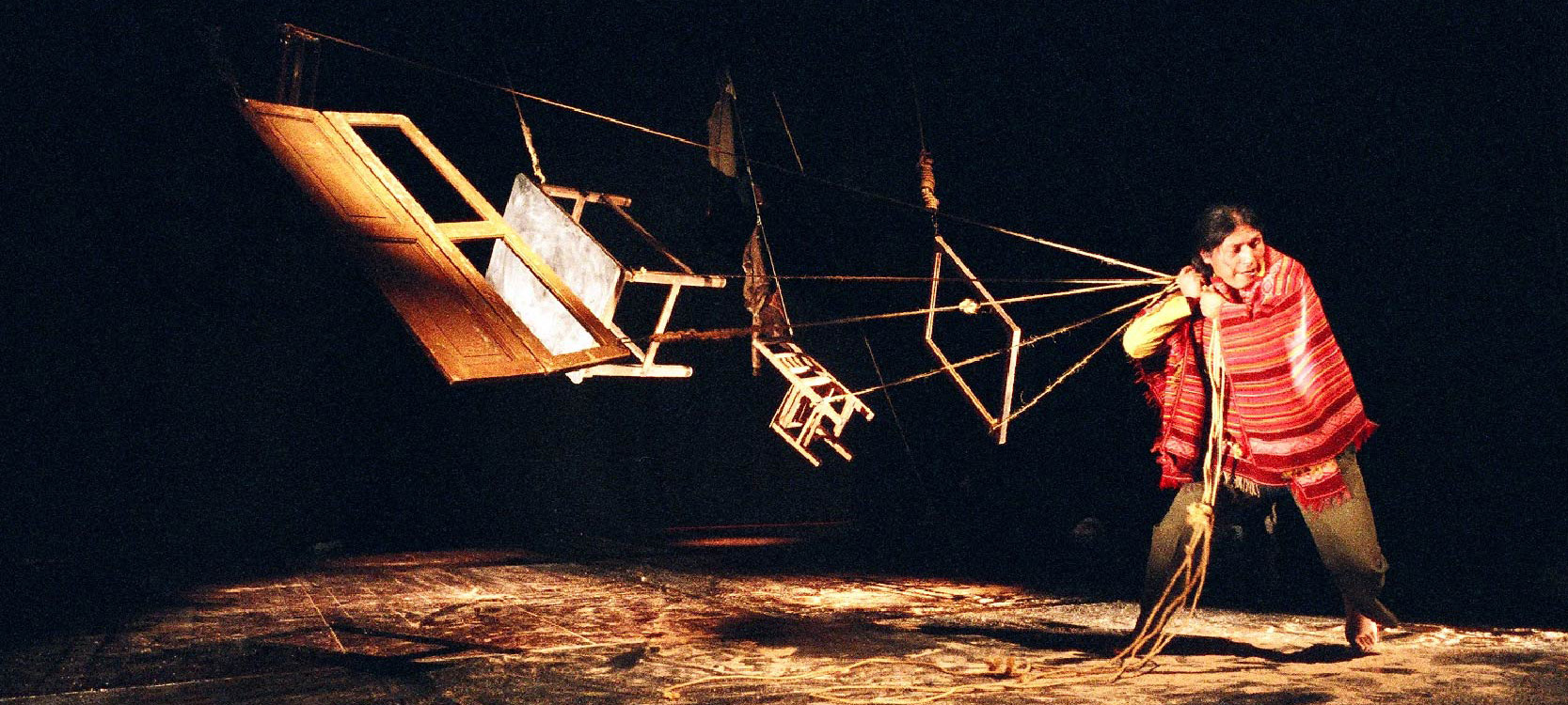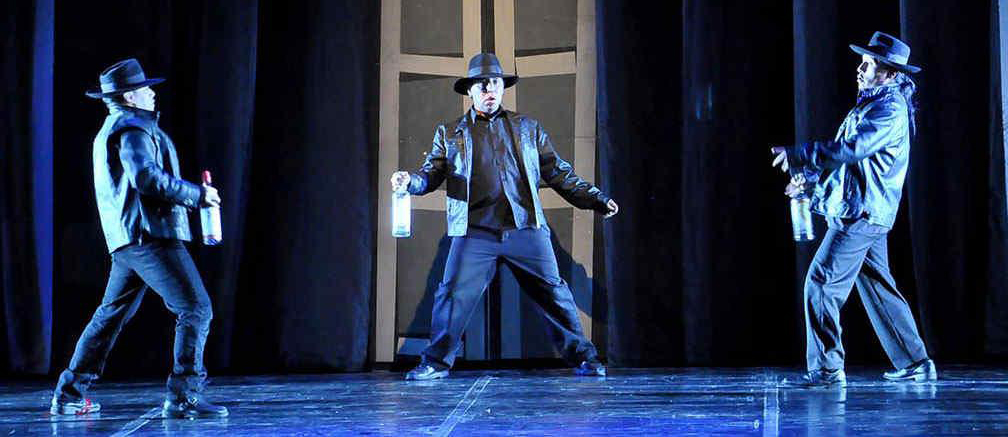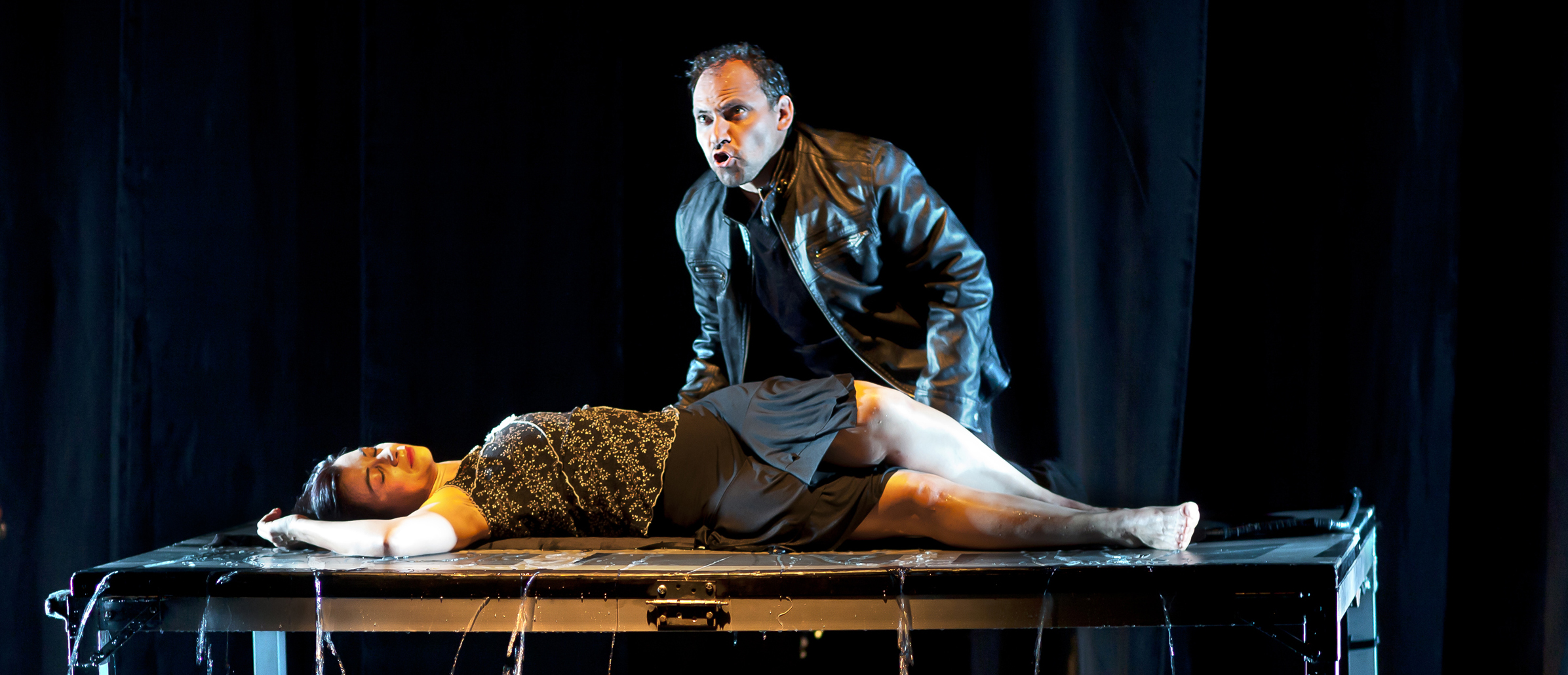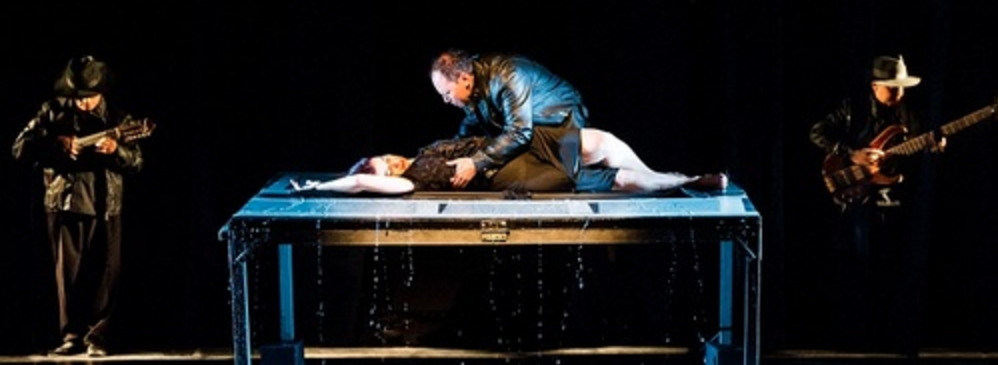Redefining La Hacienda
September 15, 2016
Recently I sat down at a table with members of Aluna Theatre and the CANACOS Collective.
The collective consists of me and five other young(ish) Latin(a/o/x/)-Canadian artists, mentored by Aluna, who will be working closely together throughout RUTAS panamericanas International Performing Arts Festival. Part of our work with the festival will be to function as ambassadors for the visiting artists in the city of Toronto, including sharing our research and reflections via blog posts during our time with these visiting companies. The company I will be assigned to is Teatro de los Andes, who present the semi-eponymous play of Hamlet de los Andes.
Hamlet de los Andes is a rendition of the classic tragedy by William Shakespeare, a tale of the Prince of Denmark’s revenge upon his father’s killer, set in the context of modern-day Bolivia. The play is said to examine the struggle between ancient traditions and modern society and depart freely from the original script in its montage of scenes drawn from improvisations and images based on themes generated by the Teatro de los Andes.
To me this sounds like a fascinating point of departure, and also quite a mystery. Just how experimental is this performance? Am I going to be able to recognize the story? To be honest, the first and last time I saw Hamlet was in a high school play, so I’m by no means a purist, but I am always interested in seeing just how far one can depart from an original while retaining the significance of the source material. I’m excited to see what Teatro de los Andes cuts and what it adds to the story, but that’s just in regards to the Hamlet side of the equation. What I’m more interested in is the “de los Andes.”
First of all, how does Teatro de los Andes attempt to define a “modern day Bolivia?” As a country with the highest proportion of Indigenous Peoples in the Americas, Bolivia’s cultural identity springs from Nations that span millennia and have witnessed centuries of colonialism as well as a resurgence that has been inspirational worldwide. The present day reality, if one can even refer to it in the singular (in fact, Bolivia’s official name is the “Plurinational State of Bolivia”) is of such gargantuan complexity I can’t even begin to fathom what faces of Bolivia will be reflected on stage.
While productions of Hamlet have been placed in myriad locations and eras of history, I have to ask the question: is Shakespeare really going to be the most relevant parallel to the Andean context? Ok, maybe that’s a terrible question. I know many will vehemently shake their heads, their fists, hell, even roll in their graves whatever the answer is, so maybe a better question is: how will Teatro de los Andes parallel these two seemingly disparate pieces of humanity/nature, Hamlet and the Andes? What universal strands of the human condition will intertwine in the telling of this story? I can’t wait to find out.
The more I read about this company, the more curious I become. Founded 25 years ago, Teatro de los Andes has had over 1600 performances throughout Bolivia and around the world. They live and work together collectively in the small town where they came together, after the founders converted an old hacienda into a theatre space. Hacienda translates roughly to “ranch” in English, but loses a lot of cultural significance in the change of language. The hacienda is associated with the regime of serfdom that dominated Latin America for centuries and still exists to this day, with Indigenous labourers serving European (or significantly ‘more European’) landowners. To convert a space that can symbolize generations of oppression into a theatre that promotes transformative social discourse that endures a quarter of a century later is an amazing achievement.
I’m interested in the cultural nuances within creation and performance. How do we make art that transcends and disrupts conventions and assumptions held, whether negative or positive, around our identities? How much of the artist is seen in the work? How does the approach innovate upon or reclaim traditions old and new? In October, I will have the good fortune to be able to attend the group’s three day workshop in their own methods of collective creation, entitled Building the Scene. The group’s process, as mentioned, involves working with images on stage and improvisations that relate to the artists themselves.
I’m thrilled by the opportunity to attend this workshop, not least because it will be a chance to work in Spanish with experienced Latin American creator/performers, and because the group’s approach seems to be both challenging and welcoming of all that the artist brings as an individual and as a member of a collective. Also, since the first workshop I attended with Aluna Theatre (Violeta Luna’s Body, Territory and the Border at RUTAS 2012) I have been consistently moved and transformed by the quality of art that Aluna curates and produces, and the approaches that inform the work we see on stage and in the studio.
I have more questions and curiosity than conclusions, but I think that’s a much better place to start than the other way around. I consider it a privilege to be able to experience the work of these visiting international artists not only by attending their performance, but by participating immersively in their approach, engaging with their cultural and collective memory, and becoming acquainted with them as individuals. If I do have a conclusion to draw, it’s that whatever artistic directions Hamlet de los Andes and the master class Building the Scene take, the richness of cultural nuance, collective dialogue, and individual interpretation inherent to these experiences will be a profound cause for reflection.
Text by: Nico Contreras
Nico Contreras is a member of CANACOS, a group of Latin Canadian professional theatre artists supported by Aluna, who will act as artistic ambassadors throughout RUTAS panamericanas 2016. Tickets for Hamlet de los Andes and all festival presentations are now available at www.RUTAS .ca.




